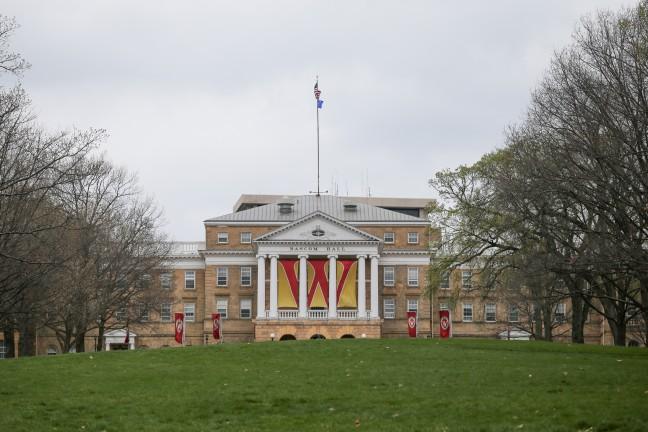Concerned students and student group leaders had the opportunity to voice their ideas about the funding process for student organizations at Thursday night’s town hall meeting put on by the University of Wisconsin student government.
The Student Services Finance Committee, the branch of student government that determines which student organizations are worthy of segregated fee dollars and how much funding they require, decided to host the town hall meetings after recognizing the difficulties student organizations face when requesting funding and proposing their budgets.
Jason Smathers, SSFC Secretary and former editor in chief of The Badger Herald, said the biggest struggle of student organization leaders is presenting what specific direct services they provide campus, since the criteria used to determine direct services is often based on the interpretations of individual committee members.
“The process is difficult and there is no one for groups to turn to for help,” Smathers said.
SSFC Representative Cale Plamann suggested some of the definitions regarding direct services found in ASM’s bylaws should be altered to reduce confusion and allow less room for interpretation by the committee.
Smathers said while the process of applying for funding eligibility is a rigorous task, once groups are approved there is no mechanism currently in place that allows SSFC to check up on groups and make sure they are actually providing their direct services.
To solve the issue and hold groups accountable, Smathers proposed a new model that would include bi-annual reviews done by three of what Smathers termed “SSFC auditors.”
Currently, groups have to re-apply for funding eligibility every two years. Under the new plan, a group that is found eligible would not have to reapply unless auditors felt the mission of that group changed, or if the group was no longer effectively offering the direct services it was approved to provide.
Representative Jair Alvarez said he was concerned with the plan, not only because he felt the addition of these three auditors would make the process more cumbersome, but also because the word “auditor” has negative connotations that do not reflect the purpose and mission of the SSFC.
Plamann said while he supports the idea of holding groups accountable, he too is concerned with the plan because he worries the auditors would not have a visible role in the public. He was concerned with the idea of approved groups only having to reapply based on the discretion of these auditors.
However, Smathers said SSFC’s role would not change and they would have the power to require organizations to reapply at any given time.
Sam Seering, a concerned UW freshman, said he saw both the pros and cons of the new system, and proposed organizations be required to reapply for funding eligibility every four years, while still having the auditors check up on groups continuously over the four year span.
Smathers said Seering’s plan was a good compromise and a model that could work.
Next week SSFC will begin taking up student government internal budgets.
Smathers hopes to have the auditor positions stipends included in SSFC’s budget and the new model of group verification in place starting next year.












